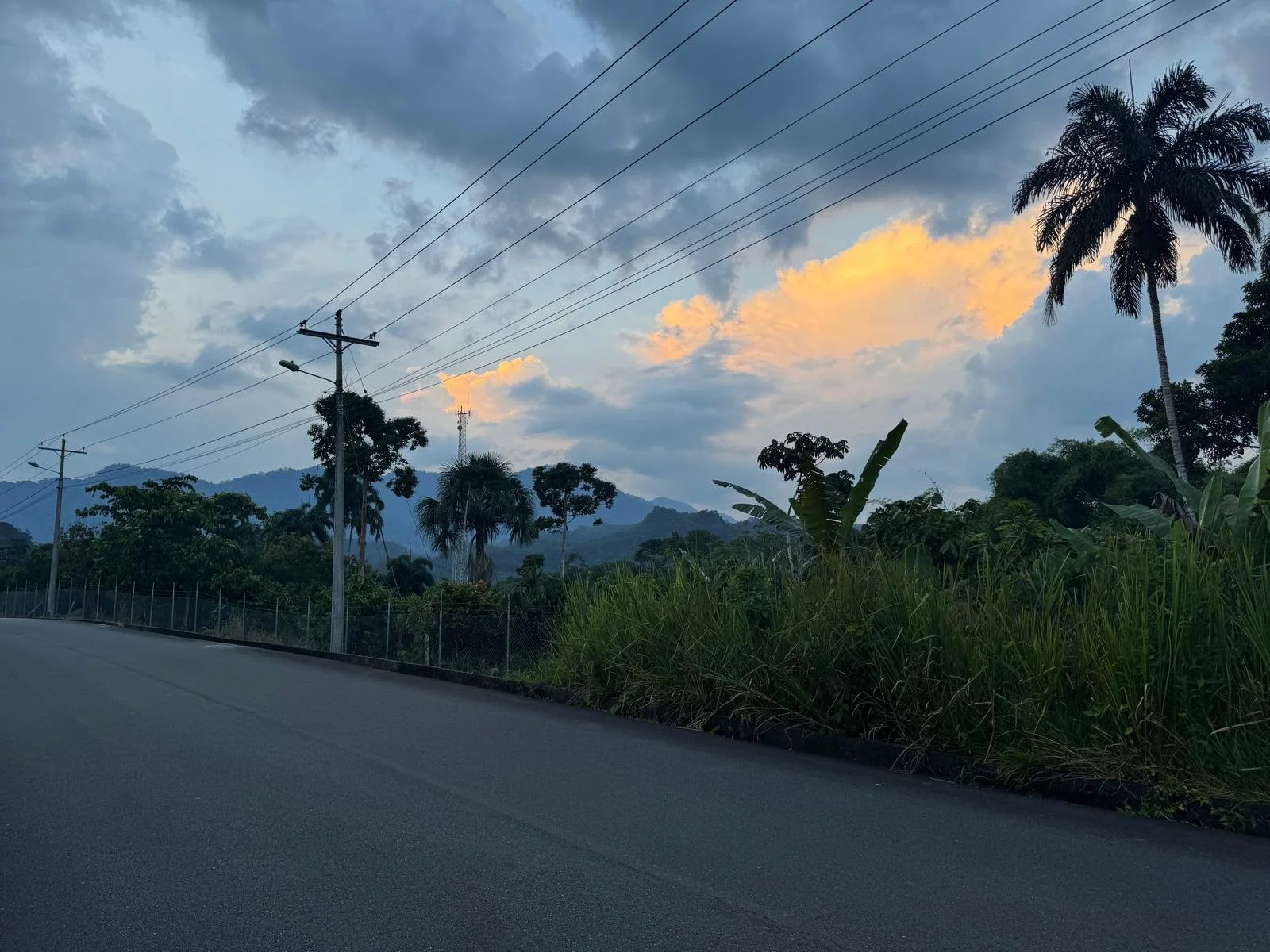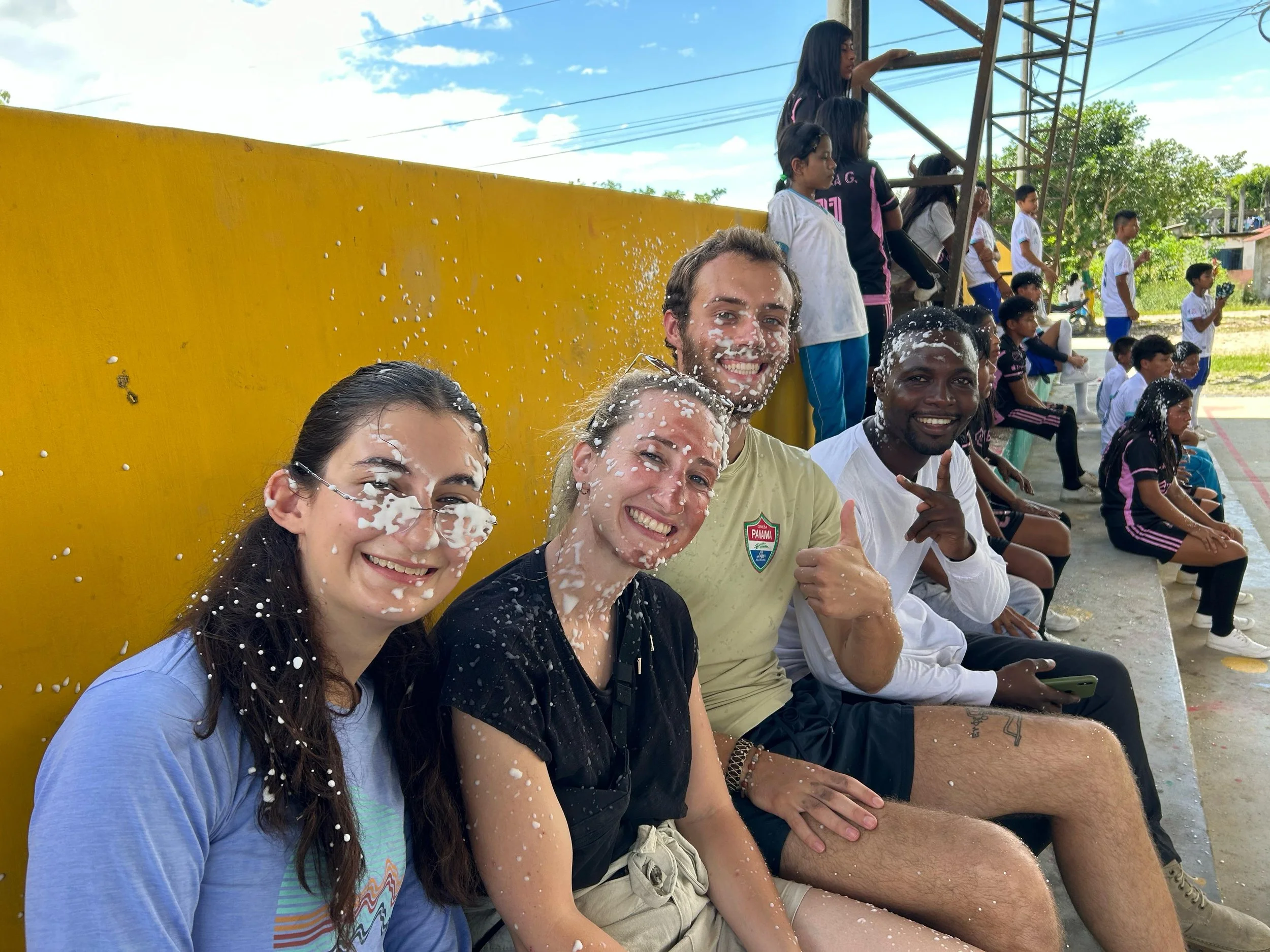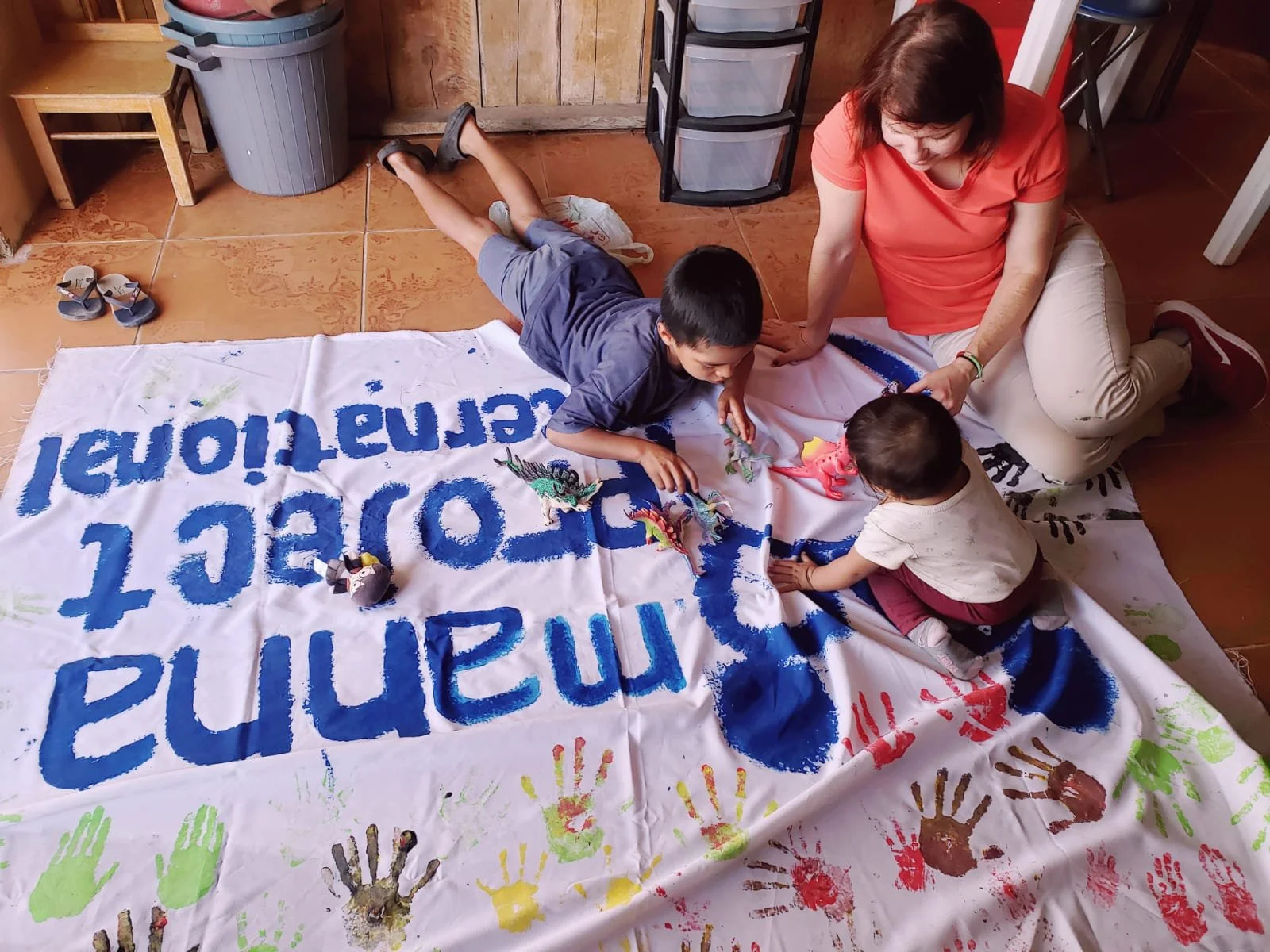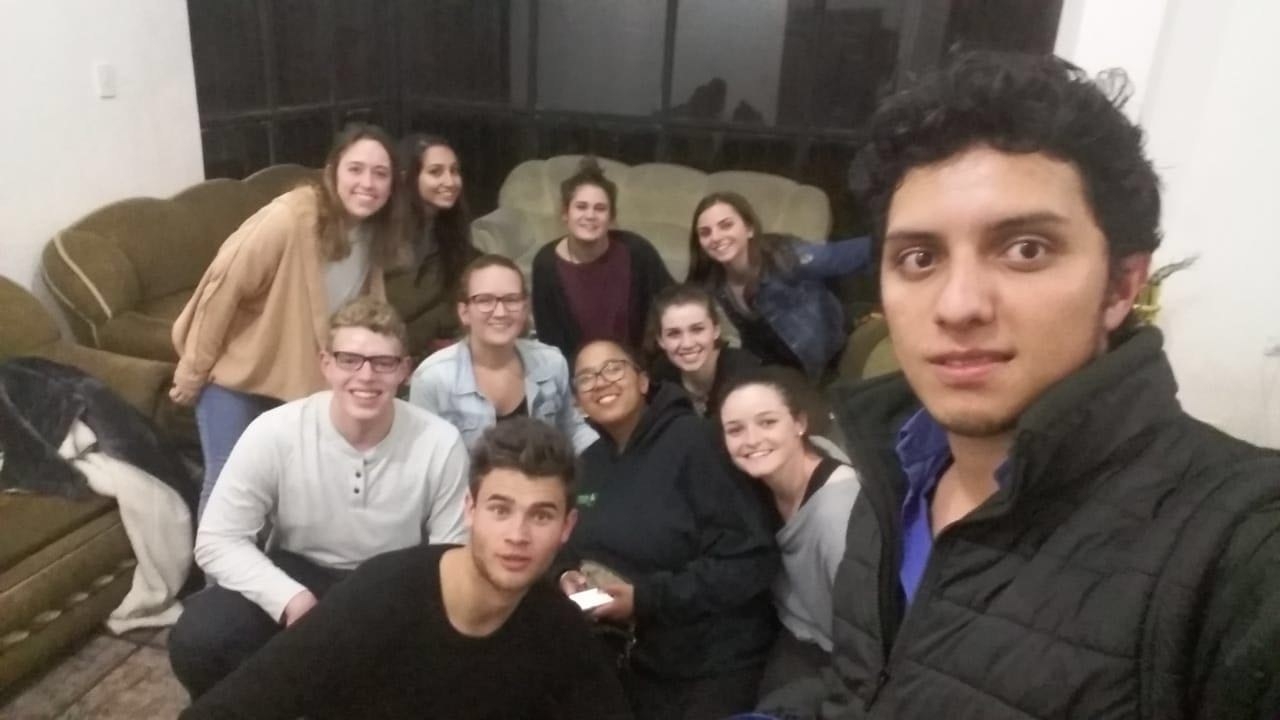Making a Home in Shandia: A Program Director’s Homestay with Berta
By: Patrick Maluwa, Program Director ‘24-’25
When volunteering abroad or interning abroad, communication is so important to understanding the host culture. Manna Project International's long term volunteer from Malawi shares a bit about his time spent in a homestay in a Kichwa family in the Amazon Rainforest and how it improved Spanish, Kichwa, and his understanding of the community he was in.
When I was leaving my home to come to Ecuador, I was feeling very sad as I was thinking about leaving my family, friends, and my country for the first time in my life. This was hard to swallow for me. The day came when my family and friends gathered to escort me to the airport. Seeing my mother cry as I checked into my flight hit me very hard as the knowledge that I would be away from home for a long period of time finally landed. She hugged me and whispered in my ear, "I am happy for you, my son. Seeing you grow and have the passion to serve communities and be one of the responsible members of society is one thing that I desired for you and now I am witnessing your growth, however I will miss you and please work hard". The journey began. It was a very long trip full of unanswered questions as it was my first time to go to Ecuador and leave Malawi, so I didn't know about the way of life of the people, or even the place, weather, or the food.
Fast forward 6 months to now and the way people have welcomed me in this community and made me feel comfortable and feel like I'm home. Despite being welcomed in the community I had one barrier which was communication as I had zero knowledge about Spanish speaking and most of the people in this community not only speak Spanish, but they also speak Kichwa language which is an indigenous language in South America, part of the Quechua family. Because of this, I was having problems communicating. Therefore Manna Project International helped me organize a homestay as a way to practice more Spanish and learn more about the community’s culture. I now write to share my experience of my home stay and the second home that I’ve built in Shandia.
I spent my 2 weeks living with my mother, Berta Andi. Berta Andi is a Shandian woman whom I came to know through the programs that we have here at Manna Project International, especially through the agriculture project. We have gotten close through this program as I get to go with her to her chakra and help her there. Berta is 56 years old and she lives alone with her dog, Blanca. She has a son who is a student in the University of Ambatta and is unable to visit frequently because of the workload and the 6 hour bus journey. During my homestay I learnt a lot from her and experienced motherly love from her. She taught me how to prepare local food such as maito de tilapia,a local tea called guayusa, chicha de yuca, and jugo de naranja (orange juice). She always made sure that I slept well and that I was under the mosquito net. She is so caring and acted like a mother to me. Some days we would make dinner together and chat as a way to teach me a lot of words in Kichwa and Spanish as well as what she learnt from her parents as a child, such as cooking, working hard, being strong and fishing.
It was really a life changing period for me as she was teaching me things that can be helpful for me to have a better understanding of the Shandia community and Kichwa culture. She introduced me to many of her relatives such as her brothers and nephews and nieces. One of her nephews is named Limber and he also became a good brother of mine. I am so grateful for making this connection. Limber taught me how to fish as we used to go fishing together and catch different fish like kala chasma.In addition to the cooking I learnt from Berta, Limber also taught me how to prepare a local dish meal by the name chontaduro.







